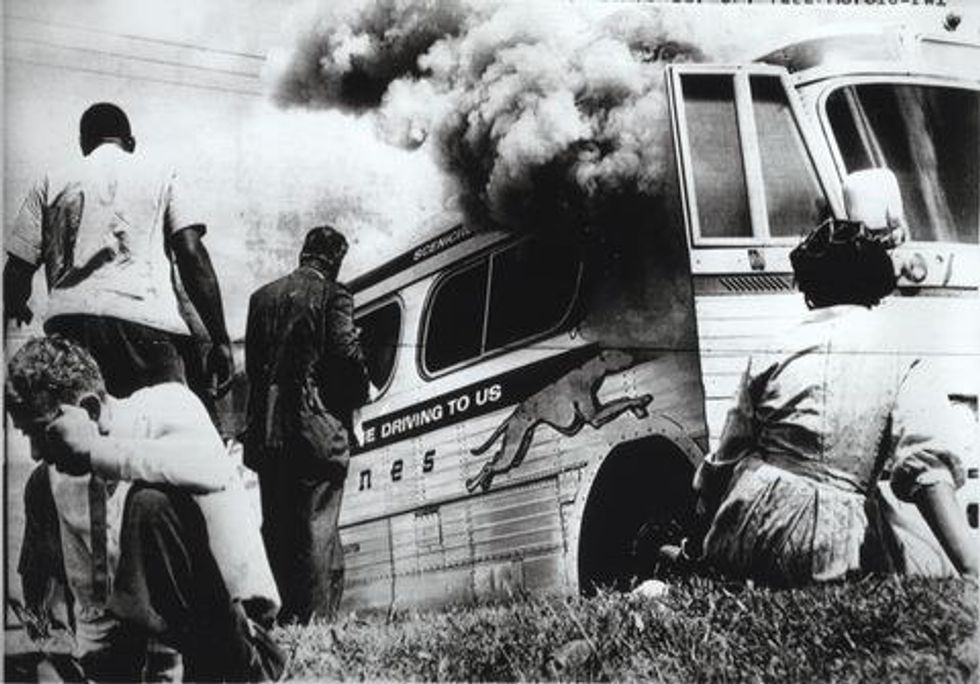On June 16 ,1961, then Attorney General Robert Kennedy was faced with the answer to his incredulous question of Diane Nash's identity, an action sparked by her coordination of the Freedom Ride from Birmingham, Alabama to Jackson, Mississippi as a college student. The Kennedy administration wanted to avoid the risk of violence that the Freedom Riders were faced with by shifting the focus to more indirect action, but Diane Nash said no: they had finalized their wills in preparation for the worst but they would not back down.
Diane Nash's legacy began two years before, at Fisk University in Nashville, Tennessee. After engaging in workshops for nonviolent resistance and activism that followed the teachings of 
But the violence Nash experienced with the Freedom Ride, especially in Anniston, Alabama, and her many arrests and imprisonment while pregnant with her first child didn't stop her.
Diane Nash spoke at Washington & Lee University on Sunday, January 15, 2017, in part of a five-day commemoration event for the legacy of Dr. Martin Luther King, Jr. When asked what kept her motivated in the face of hatred, danger and oppression, she said that she had the choice between standing up for her own rights and remaining segregated. For her, fighting for the basic humanity of not only herself, but for future generations, was motivation enough.
Nash talked about a phrase she coined: agapic energy campaigns, which refers to the Greek word "agape" meaning unconditional love for humanity. Her approach to activism and nonviolent resistance was not the absence of violence but instead the overwhelming presence of love for her community.
I was moved by this. I have been impassioned by different social justice issues because of anger, empathy, indignation, or pride, but I have never approached my desire for social change with the power of love. I learned from Diane Nash that love itself is necessary, but to be powerful it requires the six steps that she identified: investigation, education, negotiation, demonstration, resistance and ensuring the problem does not reoccur.
Now, as I reflect on the legacy of Dr. Martin Luther King, Jr., I don't have to see issues such as racism or homophobia or xenophobia or sexism as unjust yet still insurmountable. Diane Nash provided me with the tools for direct action, by breaking the issues into bite-sized pieces, thinking about what I envision instead of complaining about what I dislike, finding a few like-minded individuals who will stand with me and learning to tackle the ideas instead of the people.
Lookout, world. We've got a lot of work to do.










































